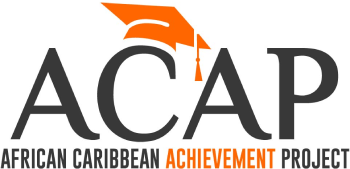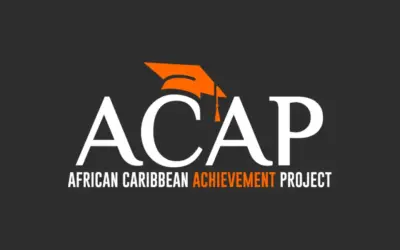The attainment gap in the UK is due to the vast inequality in the country’s education system. It is robbing young people of their futures and ‘seems almost certain to have increased’, the Education Policy Institute chief declares. Class inequalities are hardwired into our society and this is no exception for our schools.
The education gap is the inequality in educational attainment between disadvantaged students and those from privileged backgrounds. The highest academic results are achieved most by rich pupils and the lowest by poorer students. It is a complex phenomenon where no one factor is solely responsible. Social class, wealth, ethnicity and school funding all significantly factors influence how well a child performs in school. Because qualifications have a huge impact on later-life, the consequences on some pupils future prospects can be very damaging. In turn, society misses out on the contributions such pupils might have made if they had been given the chance.
The attainment gap between poor pupils and their wealthier classmates has been a persistent problem in England for many years. The Annual Report by the Education Policy Instrument outlined that disadvantaged pupils in England are 18.1 months of learning behind their better-off peers by the time they finish their GCSEs. The gap between poorer primary school pupils and richer pupils is around 9.3 months. After incrementally closing since 2011, experts reveal the attainment gap has stopped closing for the first time in a decade. This happened even before the Covid-19 pandemic. Researchers fear the gap will now grow further and effectively undo the slight progress made so far.
How does the attainment gap vary in different areas of England?
In some areas, poorer pupils are over two full years of education behind their peers. This is much larger in parts of the north of England. Pupils in Knowsley, Plymouth and Blackpool are said to be significantly falling behind. The smallest education attainment gaps are in London. Pupils living in persistent poverty is the root cause of such inequality. Which has risen since 2017 from 34.8 per cent to 36.7 per cent. With increasing poverty, it is likely that the gap will further widen if we continue on the same path. The statistics show that social vulnerability requires urgent action both in the classroom and outside it.
Research reveals that such disparity in the education system can reduce future earnings for disadvantaged students by 15 to 28 per cent. There seems to be a tendency to see students’ lack of success as their own responsibility. This is without recognising the wider societal, financial, and cultural reasons that make some students more disadvantaged, through no fault of their own.
The huge funding cuts faced by schools mean that state schools often have to rely on the local community and parents’ contribution. Defunding of education has been increasing since 2010. £200 million was slashed from educational funding in 2015, and a further £600 million was cut between 2016 and 2019. This impacts state schools far greater than fee-paying private schools, contributing to the plight of working-class kids. In 2017, a study found that 75 per cent of teachers reported budget cuts to books and equipment. A further 50 per cent reported staffing cuts and 1 in 6 reported having to ask parents to contribute to school funds. Researchers state that overall educational funding has dropped 8 percent since 2010 – the same time the Conservatives came into power.
How does the educational attainment gap vary by pupil ethnicity?
Educational attainment varies among different pupil ethnic groups – researchers have found. Black Caribbean pupils in 2011 were 6.5 months behind White British pupils. More contemporary figures show this has now grown to 10.9 months. Over a four-month increase in the last eight years. Data released by the Office for National Statistics reported Mixed (33%) and Black (30%) ethnic groups have a higher percentage of children living in low-income households than the national average. This in turn has negative impacts on their education and future life prospects. It is likely the result of such ethnic groups having higher levels of unemployment than the national average. Racial bias and vast inequality in society is the catalyst for unfair and unequal educational attainment. It’s clear that if we are to make a change towards educational equality, then systemic change towards equal opportunity for all ethnicities is vital.
The gap is not just a problem in primary school and secondary education, this goes way up to university level with bias and racism reported in admissions. 36% of BAME applicants being offered places at Russell Group universities compared to 55% of White applicants. The education system at current works as a mechanism to reproduce the elitist social structure. With the three different social classes effectively being trained for different career paths.
The GCSE and A-level debacle saw the government downgrading working-class students grades far more than their middle-class peers. Class and race inequalities permeate the whole system and funding for state schools is continually cut. Educational outcomes become the responsibility of the teacher and the pupils who have very little influence over wider social inequalities. While it is clear how unfair our education system is in the UK, deeper exploration reveals a sobering acknowledgement that it remains elitist at its core.
How long will it take to eliminate the attainment gap?
We are facing an epidemic of educational poverty. According to the Department for Education, the pandemic could widen the attainment gap by 75 per cent. The chaos of the A-level algorithm fiasco back in the summer exposed the entrenched inequalities and elitist nature of Britain’s education system by failing its students. A student interviewed by the Guardian, from greater Manchester whose own A-level results were downgraded from A to B talks about her experience. “We got told you can go wherever you want in life if you work hard enough, but we’ve seen this year that no matter how hard you worked, you got given a grade based on where you live”.
“We were told you can go wherever you
want in life if you work hard enough”
The Educational Policy Instrument report states it would take over 500 years to close the gap. Without systemic change, this gap will never close, or worse it will increase further. It’s deeply concerning that the recent school closures and loss of learning will likely increase the inequality between pupils. The government have so far not suitably responded and it is time they recognised the alarming need for change.
How to close the gap?
The upcoming spending review is an opportunity for the government to properly resource education and allocate funding for disadvantaged pupils. They need to put in place new policy measures to help poorer students and start to close the gap. The pupil premium worth £2.41 billion in 2019/20 should be properly reviewed to assess whether the money is being spent effectively. And where, if possible, the money can be diverted to rightly support pupils that have so far been let down. Similar to the NHS 10-year plan, there should be a long-term plan set out for combatting social injustice and successfully supporting ALL pupils to fulfil their fullest potential.
The government must develop a plan to combat social injustice that is rampant within the UK’s education system. Closing the attainment gap and levelling the playing field for future generations should be considered of high importance. It should be considered a priority for the prosperity of the country and its people.
ACAP is a charity dedicated to raising the achievement, attainment, and aspirations of all young people. To this end, we run a variety of projects and services such as mentoring, youth advocacy and parent’s forums. We take a coordinated approach in supporting children to help them achieve their fullest potential in school. Please get in touch if you or someone you know would like tailored educational support.
Sources:
https://epi.org.uk/publications-and-research/education-in-england-annual-report-2020/
https://epi.org.uk/wp-content/uploads/2018/07/EPI-Annual-Report-2018-Lit-review.pdf



0 Comments